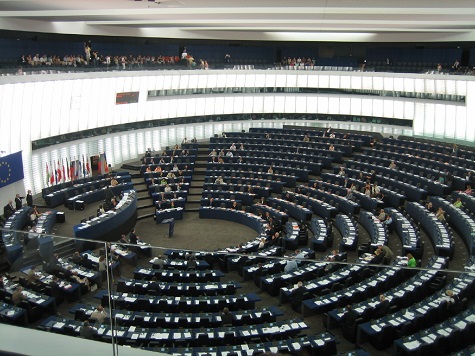After wrenching the power to select the next president of the European Commission away from the leaders of the member states, the European Parliament is now moving to take control of the selection of individual commissioners away from national governments.
Martin Schulz, the German socialist president of the parliament, warned national leaders on Tuesday that unless they nominate what he calls “enough” women as commissioners, the parliament will reject the entire incoming college of commissioners.
Schulz, who was one of the organisers of the new system of “Spitzenkandidat” or lead candidate which in effect chose Jean-Claude Juncker as president of the commission despite opposition by British Prime Minister David Cameron, says that the three or four women’s names now circulating are not enough.
According to EU Observer, Schulz said: “Looking at the information currently available on the number of female candidates, the commission would not receive the backing of majority in the European Parliament. I will make that point to the [EU leaders] tomorrow.”
Schulz meant the heads of state and government who make up the European Council, which meets today, Wednesday, in a special session to discuss candidates for the other top jobs in Brussels which become vacant later this year.
Although commissioners are nominated by member states, they must be approved by a majority of the European Parliament.
Schulz’s warning that the parliament will reject candidates simply because they are male appears to be an attempt to intimidate national governments to choose candidates to suit the parliament’s political agenda, rather than to suit what a national government may feel is in the best interests of its country.
As president of the commission, Juncker will have the power to decide which commissioner gets which portfolio, and he has already indicated that if national governments put forward women candidates they are more likely to be given an important portfolio.
This appears to be a warning by Juncker to national governments that, like the European Parliament, he plans to discriminate against male candidates.
Cameron did the same thing this week in a controversial Cabinet reshuffle which resulted in well-known and experienced male ministers being sacked and replaced with little-known and inexperienced female ministers.
The prime minister said he this was “a team that reflects modern Britain.” Critics called it a P.R. stunt.
Juncker must have commissioners from all 28 member states in place before the summer break so the European Parliament can begin their confirmation hearings in September.
As the Guardian’s veteran EU correspondent Ian Traynor pointed out this week: “The key criteria for the jobs are not meritocratic, instead revolving around a fragile political balance between right and left, male and female candidates, east and west Europeans, big countries and small countries.”
One candidacy to be discussed today by the European Council will be that of the next grandly-titled High Representative of the Union for Foreign Affairs and Security Policy, the EU’s foreign policy chief, to succeed Britain’s Catherine Ashton.
The frontrunner for the post is Italy’s foreign minister Federica Mogherini, who has the backing of seven centre-left prime ministers, but who is opposed by Poland and other former Soviet bloc member states as being too soft on Russia in the Ukraine crisis.
The rejection of a female candidate for the job of foreign policy chief, which automatically includes a post as vice-president of the European Commission, means that for tactical reasons Mogherini’s critics have to come up with other female names to put forward. The name most mentioned as an alternative candidate is that of Kristalina Georgieva, Bulgaria’s commissioner.
However, the Italian government, which holds the six-month rotating presidency of the Council of the EU, has indicated it is determined to see its own foreign minister take the post and, although the council traditionally prefers to decide by consensus, will to force a vote on the matter to secure a majority for Mogherini.
According to the Financial Times, “EU diplomats say there are at least four central and eastern European countries prepared to vote against Ms Mogherini, but it is unclear whether they have enough allies to block her candidacy.”

COMMENTS
Please let us know if you're having issues with commenting.